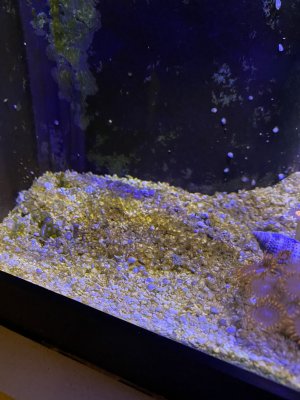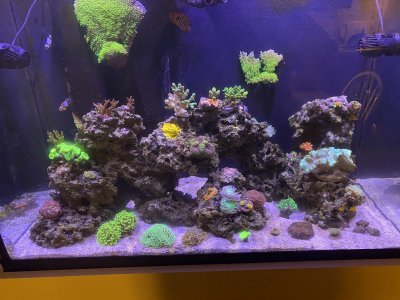- Joined
- May 18, 2019
- Messages
- 67
- Reaction score
- 21
Hi everybody, so one month ago I asked for your help to see if the problem that I have is a cyanobacteria or a dinos issue. And I do not nothing until today. Someone told me to get a sample and put it in a microscope to see really what really is.
I have years in the hobby but this problem is new for me.
This is the link of the last post:
https://m.facebook.com/story/graphql_permalink/…
So now, I am newbie with the microscope and I don’t know how to distinguish what creatures are. I am 0% expert on this topic.
Can someone told me what are they? And if you think if I have cyano or dinos, how can I get rid of it.
Maybe I am just overthinking and that type of algae is neither cyano nor dinos, and is something normal.
The last thing that I want is to hurt my little reef tank.
Thanks in advance

The last thing that I want is to hurt my little reef tank.
Thanks in advance

I have years in the hobby but this problem is new for me.
This is the link of the last post:
https://m.facebook.com/story/graphql_permalink/…
So now, I am newbie with the microscope and I don’t know how to distinguish what creatures are. I am 0% expert on this topic.
Can someone told me what are they? And if you think if I have cyano or dinos, how can I get rid of it.
Maybe I am just overthinking and that type of algae is neither cyano nor dinos, and is something normal.
The last thing that I want is to hurt my little reef tank.
Thanks in advance
The last thing that I want is to hurt my little reef tank.
Thanks in advance















